How to Never Hit Your Head Again
A Visual Guide to Concussions and Encephalon Injuries
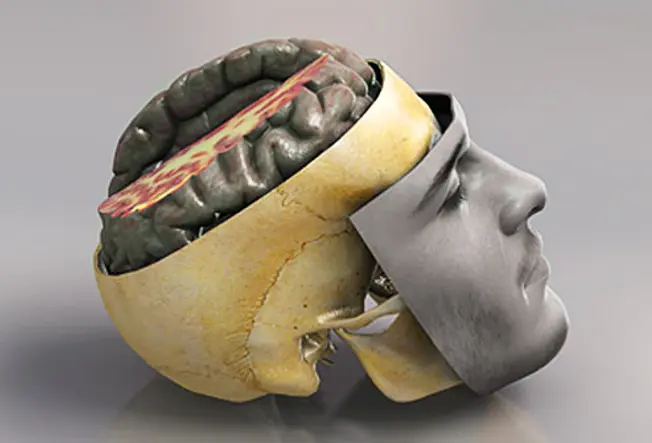
Caput Injuries and Your Encephalon
1 / 22
Your brain is well protected from most harm. It sits inside a difficult, bony skull. Layers of membranes and fluid provide extra padding. Only even with all this natural protection, injuries even so happen. And the damage can affect everything you do, from thinking to moving. A traumatic brain injury (TBI) is whatever blow to your caput that'south hard plenty to touch on the brain.
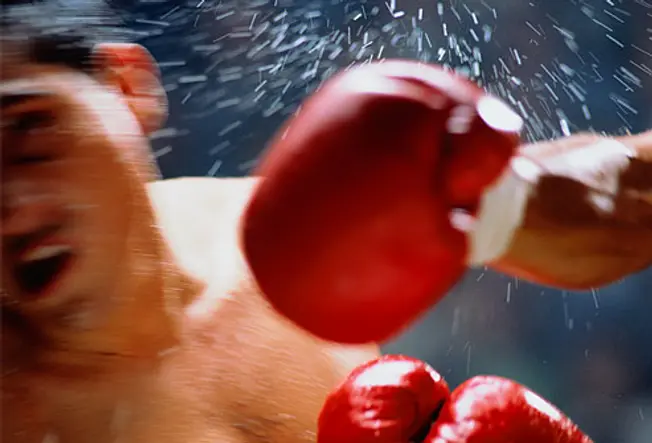
How Does Your Encephalon Get Hurt?
two / 22
A hard blow to the head tin milkshake your brain inside the skull. The result: bruises, broken blood vessels, or nerve damage to the brain. A hard hit that doesn't crusade bleeding or an opening in your skull could be a airtight brain injury. An open brain injury is when an object penetrates the skull and goes into your brain.
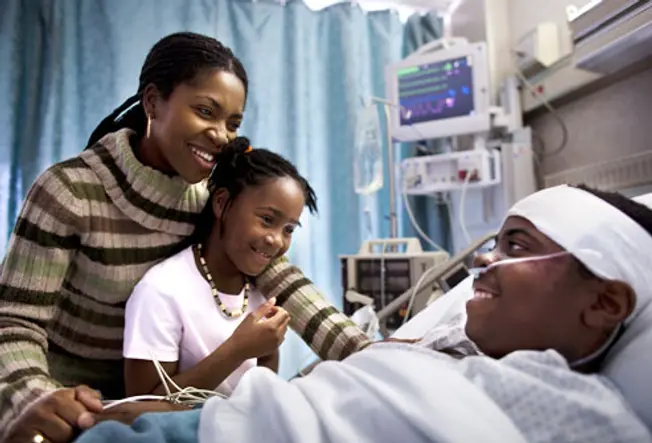
Encephalon Injuries: Mild vs. Severe
3 / 22
A TBI tin be mild or severe. A concussion is a mild TBI -- yous should recover pretty apace. A astringent TBI can do plenty damage to knock you lot unconscious for a longer period. It can even lead to a coma or death.
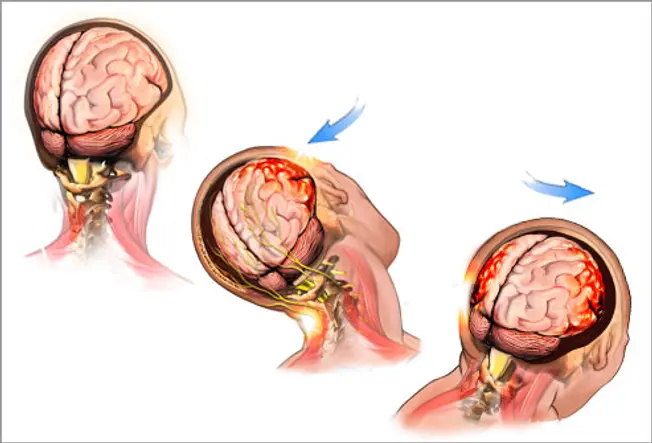
What Is a Concussion?
four / 22
Information technology's when a jolt to your body or head shakes your brain back and forth inside your skull. Whatsoever hard hitting -- whether information technology's from a football tackle or a car accident -- tin can lead to a concussion. Although it's considered a balmy brain injury, it can cause lasting damage if y'all don't rest long enough after to allow your brain fully heal.

Is Information technology a Concussion?
5 / 22
After a fall or blow to the head, you lot may laissez passer out for a few seconds. But many people with concussions don't black out. Telltale symptoms include:
- Dizziness
- Nausea or airsickness
- Blurry vision
- Headache
- Trouble thinking conspicuously
Let a doctor check y'all later a head injury.
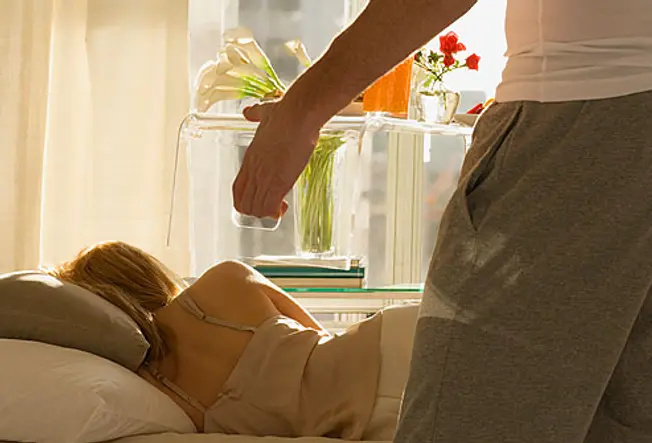
Healing After a Concussion
six / 22
Just like y'all'd rest your ankle after a sprain, you need to rest your brain subsequently a concussion. Get plenty of sleep. Ease back into school and work when y'all commencement to feel better. Stay off the playing field until your doctor gives you the OK. Getting a second concussion before the first one heals can deadening your recovery and heave the odds of permanent damage.
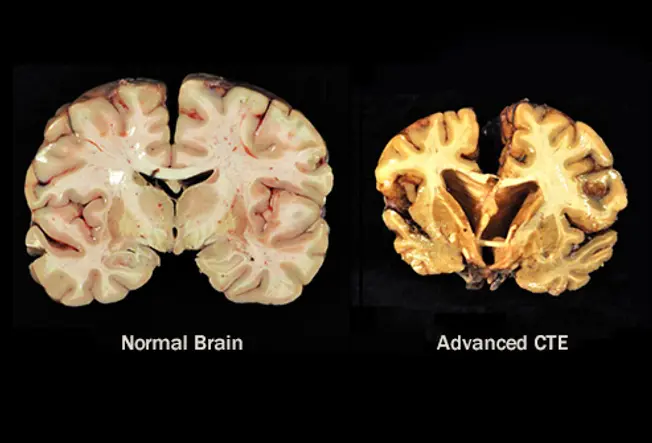
Chronic Traumatic Encephalopathy (CTE)
7 / 22
Football players, boxers, or anyone who gets repeated blows to the head can become this status, which kills brain cells. A single concussion isn't likely to cause information technology. Symptoms often don't prove up for years. At first they include problems with mood, beliefs, and impulse control. Memory loss, bug making rational decisions, and dementia come later. Doctors can't diagnose it until after death, when they can expect at your encephalon. At that place's no treatment for the disease, only its symptoms.

Skull Fractures
eight / 22
Your noggin's pretty tough. But if it's striking hard enough, it can crevice. That'southward chosen a skull fracture. If the precipitous edges of a fractured skull press into your brain, they can damage the frail tissues and cause haemorrhage. Scout out for clear fluid from the brain or claret that drains from your nose or ears.
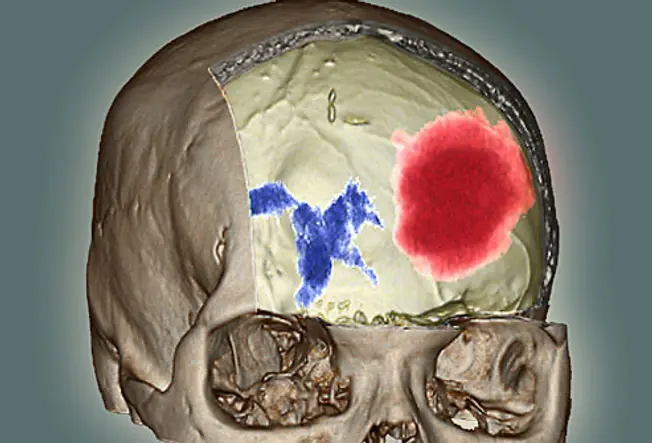
Haemorrhage in the Brain
nine / 22
Sometimes an injury damages blood vessels inside your encephalon. The trapped claret pools and forms a bump called a hematoma. It can lessen or cutting off blood menses to your brain. This is a medical emergency. Some signs of a hematoma include:
- Headaches
- Vomiting
- Trouble with balance
- Weakness
- Seizures
- Problems speaking
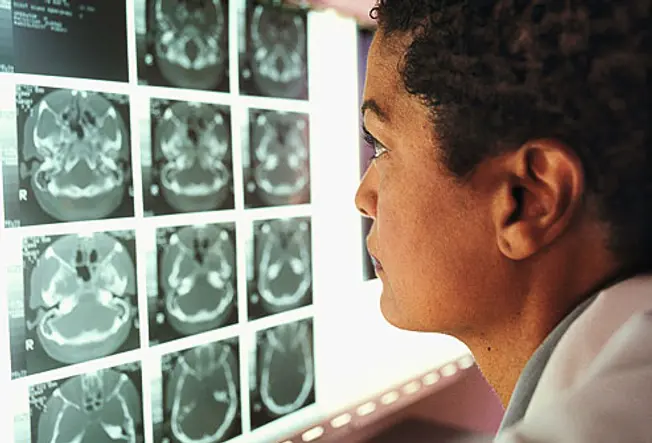
How Are Brain Injuries Diagnosed?
10 / 22
Your doctor will exercise a series of tests. They'll probably inquire questions to check your memory, concentration, problem-solving ability, and other encephalon functions. A brain scan chosen computed tomography (CT) or magnetic resonance imaging (MRI) can help discover the injury.
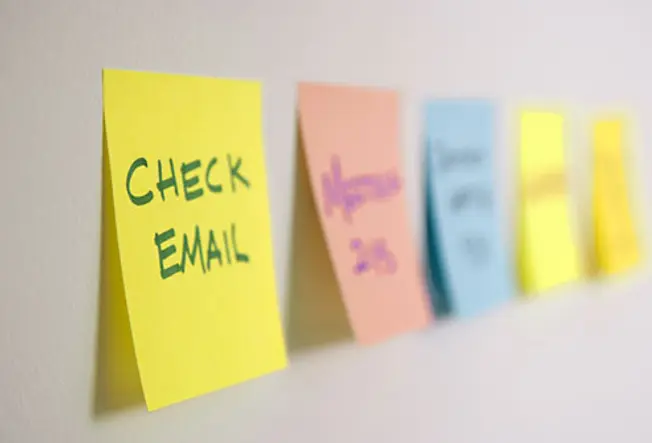
Retentivity Bug
11 / 22
You might impairment the parts of your brain that help you store and retrieve information. That'll make information technology harder to remember your birthday, what you ate for breakfast, or the accident that acquired your injury. Some memory trouble is normal, just it should come back. Severe brain injuries sometimes crusade long-term retentivity loss.

Issues With Motion
12 / 22
An injury can affect parts of your brain that aid you residuum and walk. As a result, yous may experience dizzy -- like the room is spinning. Or you could damage the part that helps you encounter conspicuously and gauge depth. Physical therapy and other rehabilitation can meliorate your balance and movement after a caput injury.
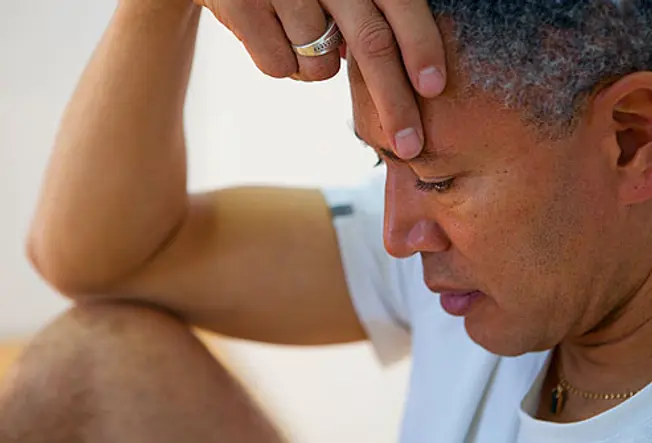
Mood Changes
thirteen / 22
You may not experience like yourself after a TBI. Upwards to one-half of people have symptoms of depression, including lingering sadness and sleeplessness. Some take wild mood swings, laughing one infinitesimal and crying the next. Others feel overly angry or anxious. If you can't control your emotions, talk to your doctor almost treatments.
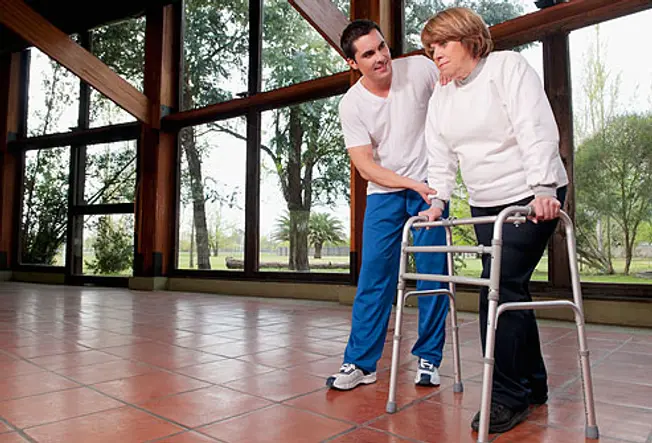
Long-Term Furnishings
14 / 22
A serious encephalon injury can stick with you for life. Bug thinking, moving, and decision-making your emotions may non go away, especially if yous've taken many hits to the caput (from sports, for example). In that location's some evidence that having a TBI increases your risk for Alzheimer's disease, Parkinson's, CTE, and other brain disorders equally you go older.
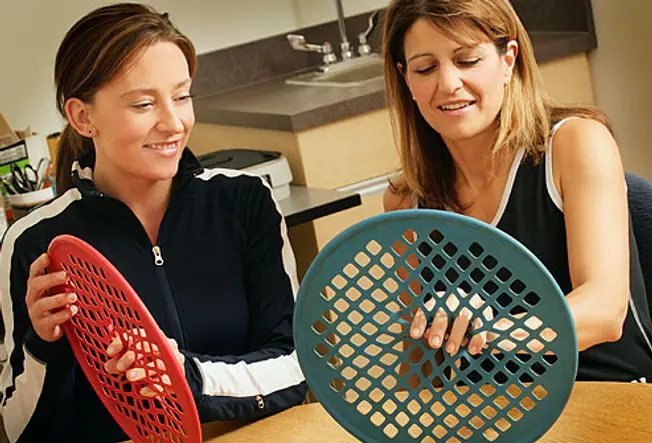
The Recovery Procedure
xv / 22
For mild injuries like concussions, the best treatment is to remainder and requite your brain a chance to heal. Concrete, occupational, and speech therapy tin can help with the physical and mental side effects of severe damage. Counseling sessions with a psychologist or psychiatrist tin help you lot learn to live with your injury.
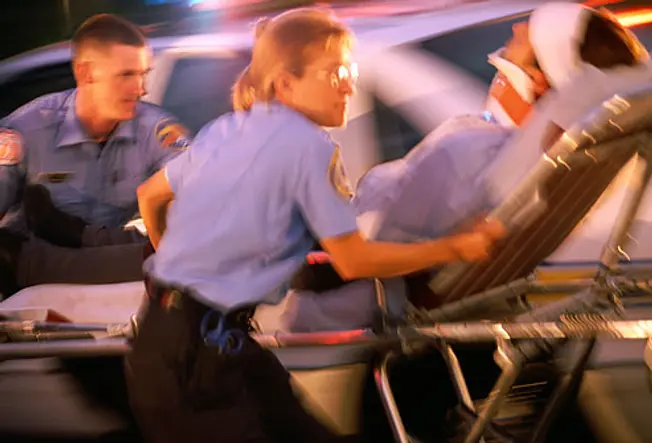
How Common Are Brain Injuries?
16 / 22
Every year, i.7 1000000 people have an accident that leads to a traumatic brain injury. Most -- most 75% -- are mild, including concussions. More than serious injuries send well-nigh 223,000 people to the infirmary and cause about 60,000 deaths.
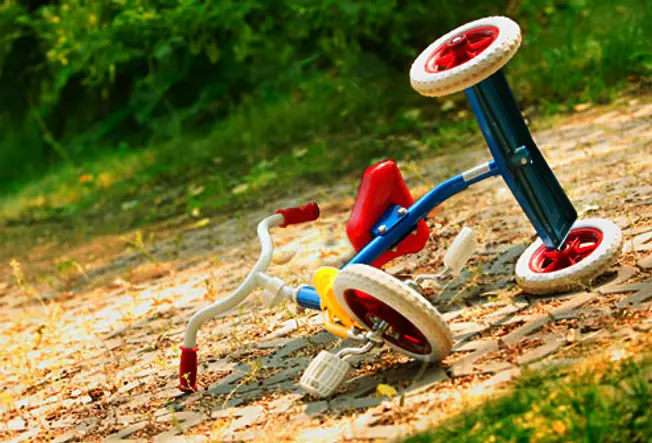
Children and Brain Injuries
17 / 22
They're among the leading causes of inability and death in children. over 800,00 -- more than boys than girls -- visit an emergency room for a brain injury each year in the US. Kids with TBI tin can take more problem learning. They may also struggle with behavioral and emotional problems.
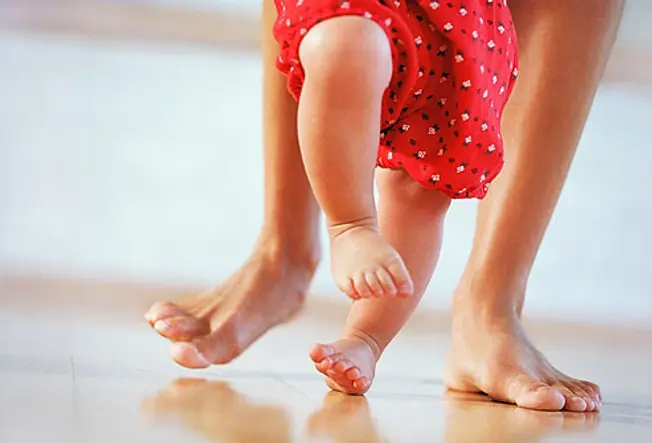
Is It Just a Crash-land on the Caput?
18 / 22
Learning to walk is a wobbly time. An unsteady toddler can take a lot of tumbles. Luckily, kids are pretty sturdy. Almost bounce correct dorsum from a small bump on the noggin. But if your child won't end crying, throws up, says their head or neck hurts, or has trouble waking upward after a fall, telephone call the medico correct abroad.
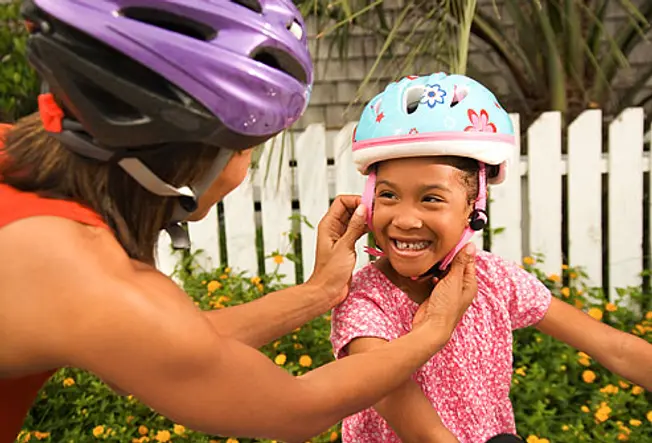
Prevent Kids' Injuries
19 / 22
Toddlers usually get a brain injury after a fall. Once kids reach school age, sports injuries and bicycle and motorcar accidents are the culprits. Teach kids to wear close-fitting helmets and other safety gear during sports and recreational activities. There is as well a new device called Q-Collar which can be worn to help reduce movement of the brain. Don't let them play sports that aren't right for their age. Make sure they follow bike prophylactic rules about traffic and road hazards.
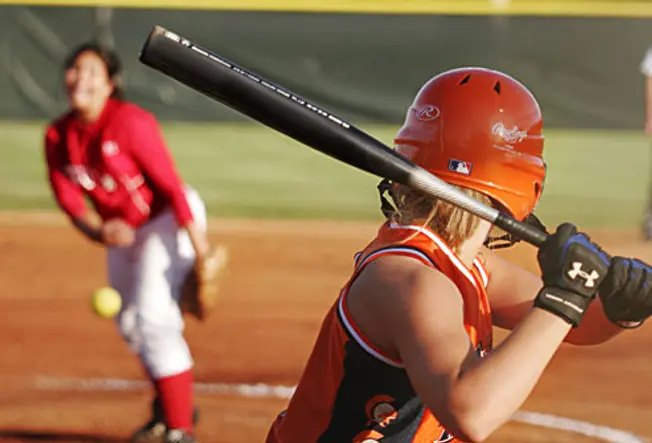
Tips for Athletes
20 / 22
Blows to the head are common in professional and amateur sports like football game, baseball, and hockey. Some leagues have even changed policies to forbid injuries and treat them faster and more effectively. Habiliment a helmet that fits snugly every time you lot play. Obey the rules to forestall falls and head-on collisions.
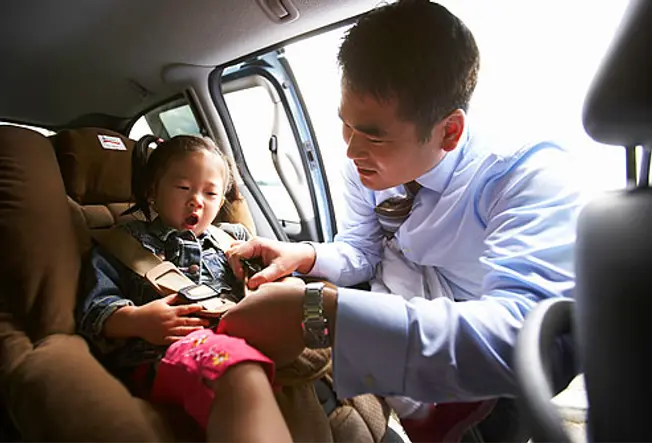
Rubber in Cars
21 / 22
An auto accident can thrust your head forward -- or worse, propel you from the vehicle headfirst. Before you lot put the key in the ignition, put on your seatbelt and buckle your child into an age-appropriate safety seat. Teach kids to wear seatbelts when they ride on buses or in other people's cars. Rear collisions can make your brain slosh around in your skull equally your head snaps frontwards and then back.
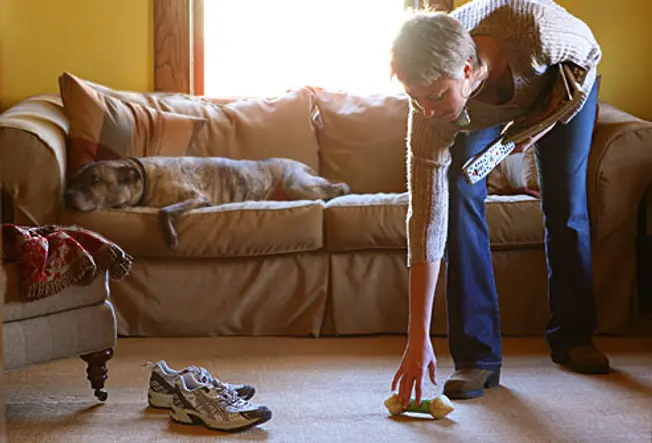
Preventing Injuries from Falls
22 / 22
Yous don't accept to fall far or hard to injure your head. To avoid taking a tumble, clean up the clutter, cords, and other hazards that may cause you to trip. Install lights in halls and stairways then y'all don't stumble while going to the bath at nighttime. Secure all rugs and mats firmly to the floor then they don't slide effectually under your feet.
IMAGES PROVIDED Past: (1) 3D4Medical SOURCES: American University of Family Physicians: "Head Injuries," "Head Injuries--Complications." American Clan of Neurological Surgeons: "Sports-Related Head Injury." Brain Injury Association of America: "Diagnosing Brain Injury." CDC: "Concussion and Mild TBI," "What to expect after a concussion," "What are the Potential Long-Term Outcomes of TBI?" "Clinical Diagnosis and Management." Concussion Legacy Foundation: "What Is CTE?" Dana Foundation: "Brain Trauma, Concussion and Coma -- The Dana Guide." McGill Academy: "The Encephalon from Top to Lesser." Medscape: "Neuropsychiatric Sequelae of Traumatic Brain Injury." "Traumatic Brain Injury in Children." Merck Transmission Home Edition: "Skull Fracture." National Dissemination Center for Children with Disabilities: "Traumatic Brain Injury." National Highway Traffic Prophylactic Administration: "Kids and Bike Safety." National Establish of Neurological Disorders and Stroke: "Traumatic Brain Injury: Hope Through Inquiry," "NINDS Traumatic Brain Injury Information Page." Nemours Foundation: "Head Injuries," "Concussions." American Psychological Association. National Football game League. National Institutes of Health: "Head Injury." U.S. Section of Wellness and Human Services: "Treating Clients with Traumatic Brain Injury." University of Washington Medical Eye: "Memory and Brain Injury." Virginia Commonwealth University: "Emotional Issues After Traumatic Brain Injury." Evidence Sources
(2) Bruce Ayres / Stone
(3) Rubberball
(4) Nucleus Medical Fine art, Inc.
(5) Terry Vine / Blend Images
(6) Paradigm Source
(vii) Boston University Center for the Study of Traumatic Encephalopathy
(viii) Zephyr / Photo Researchers, Inc
(9) Zephyr / Photo Researchers, Inc.
(x) Mike Powell / Digital Vision
(11) Fotosearch
(12) Denkou Images / Cultura
(thirteen) John Lund/Marc Romanelli / Alloy Images
(14) Glow Wellness / Glow
(fifteen) Don / Design Pics
(16) Stockbyte
(17) Leah / Pattern Pics
(18) Laurence Monneret / Rock
(nineteen) Jupiterimages / Comstock
(20) Jeff Greenberg
(21) Thomas Northcut / Riser
(22) Steve Pomberg / WebMD
Source: https://www.webmd.com/brain/ss/slideshow-concussions-brain-injuries
0 Response to "How to Never Hit Your Head Again"
Post a Comment